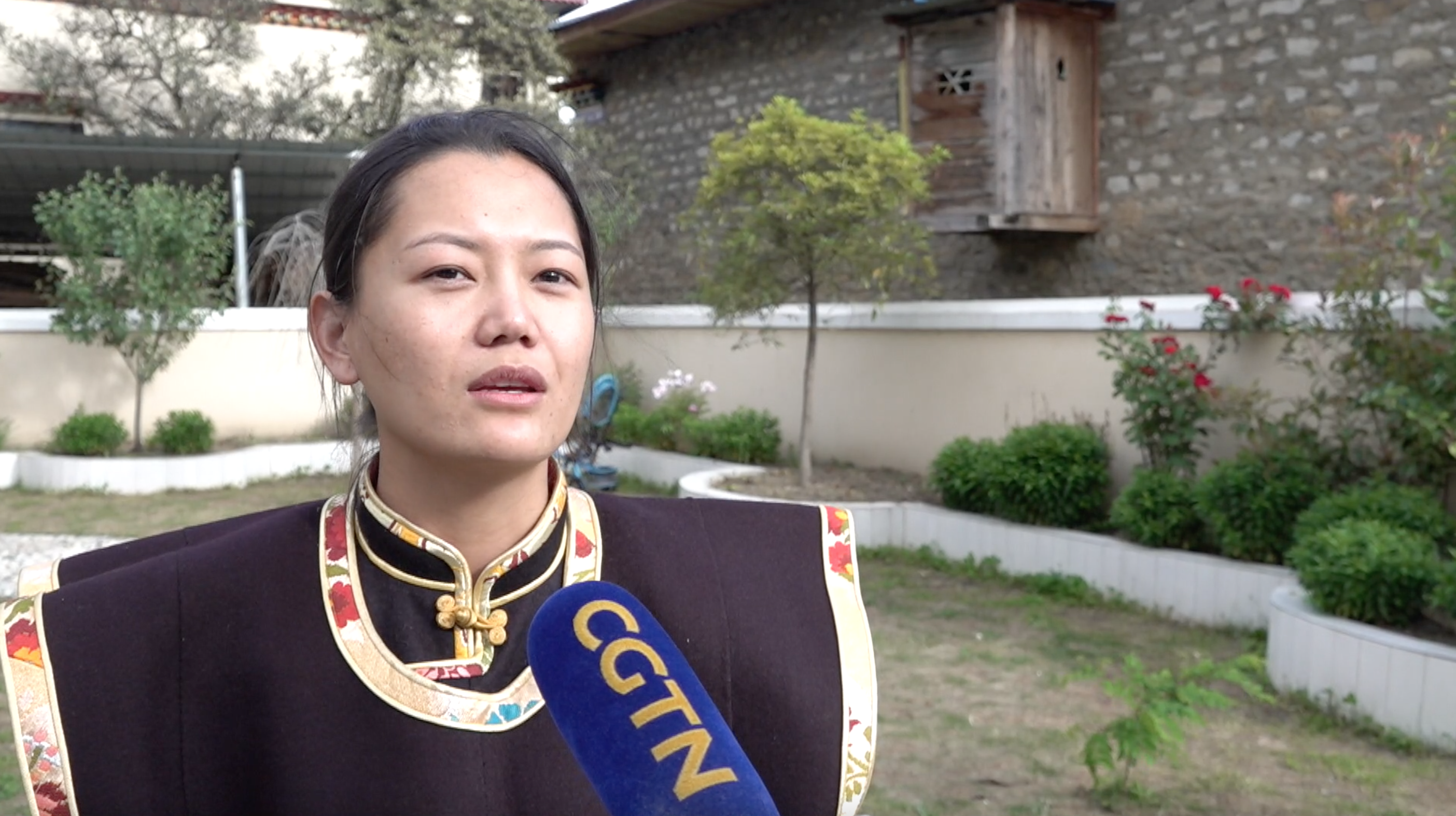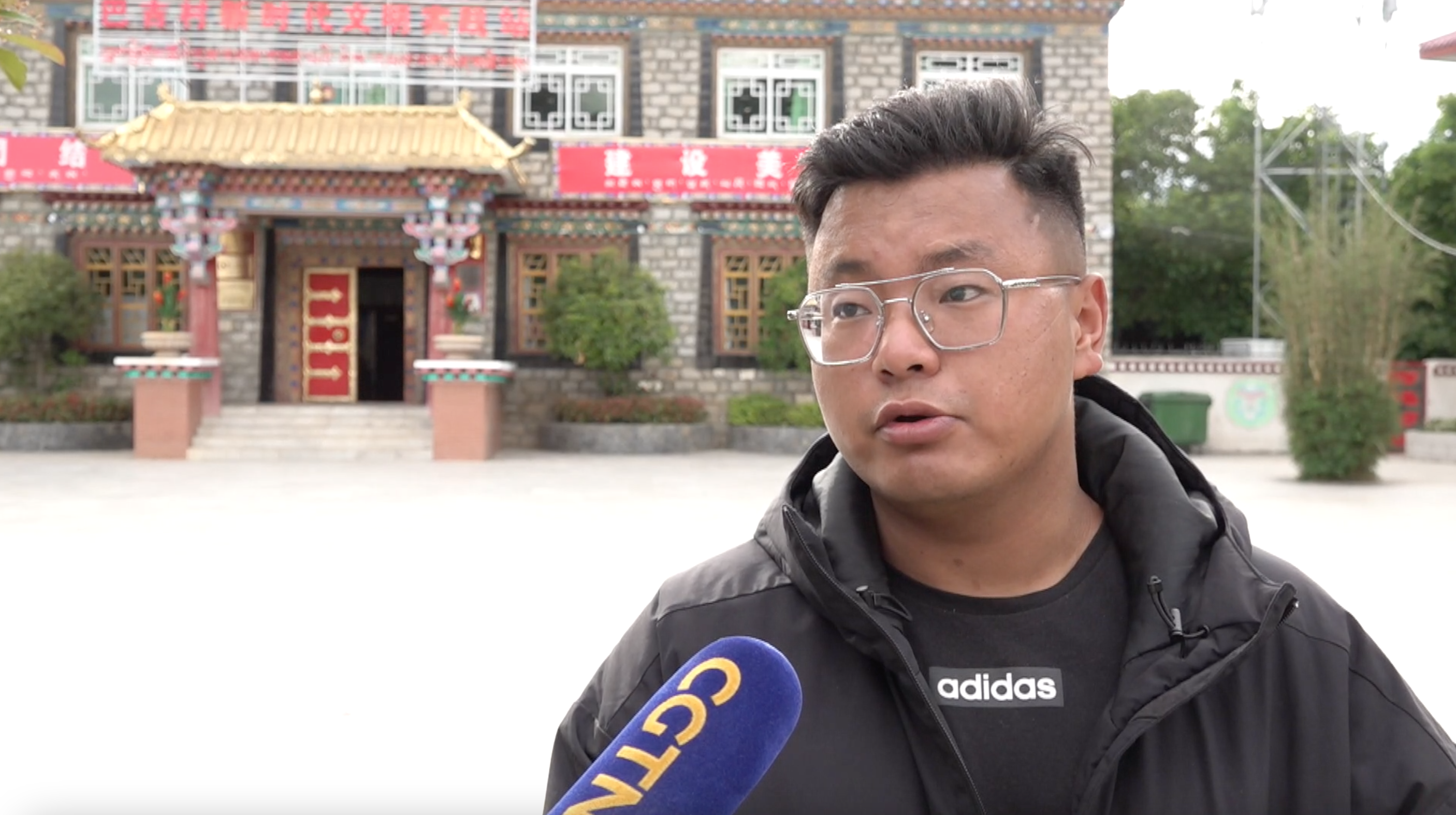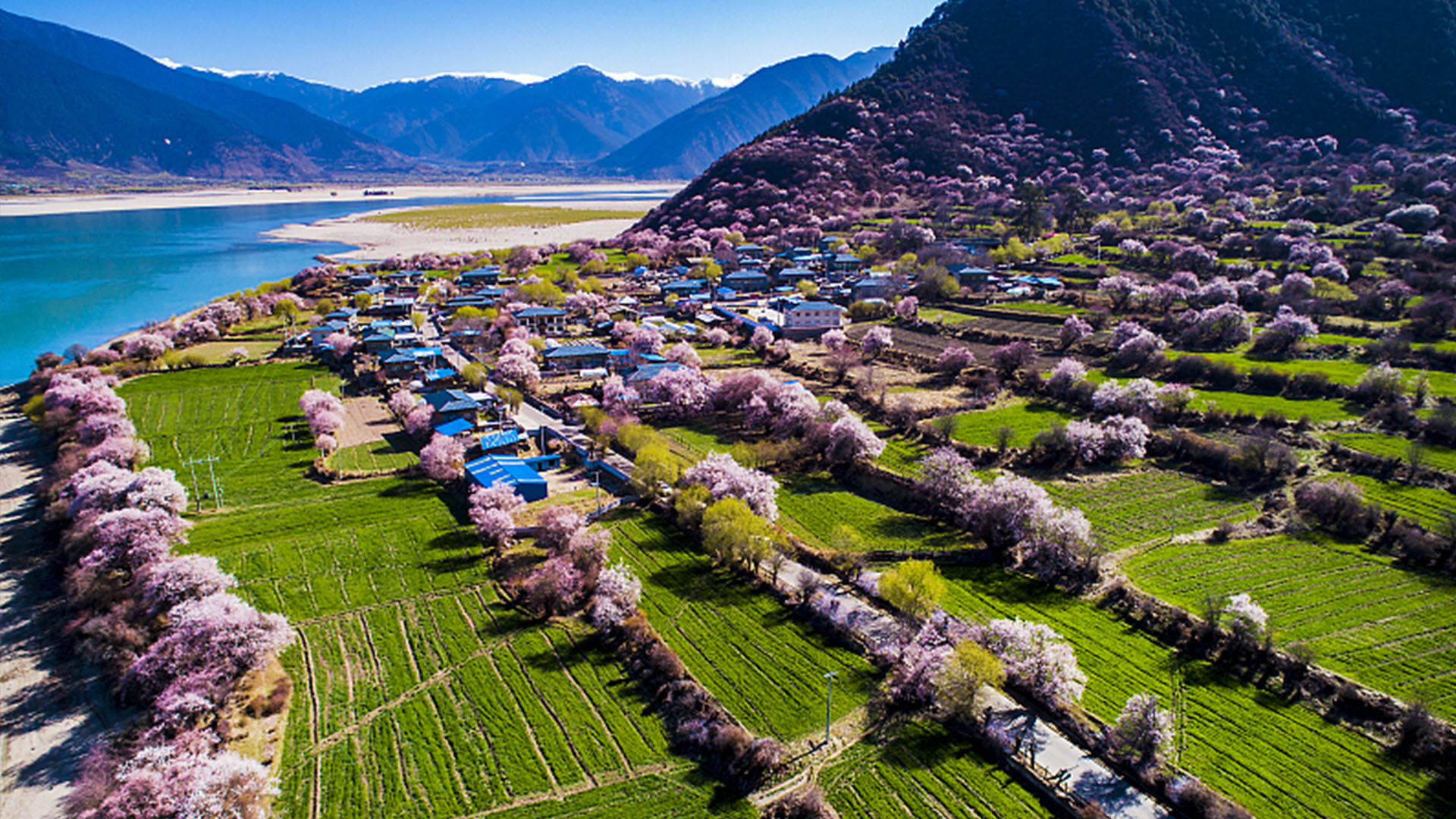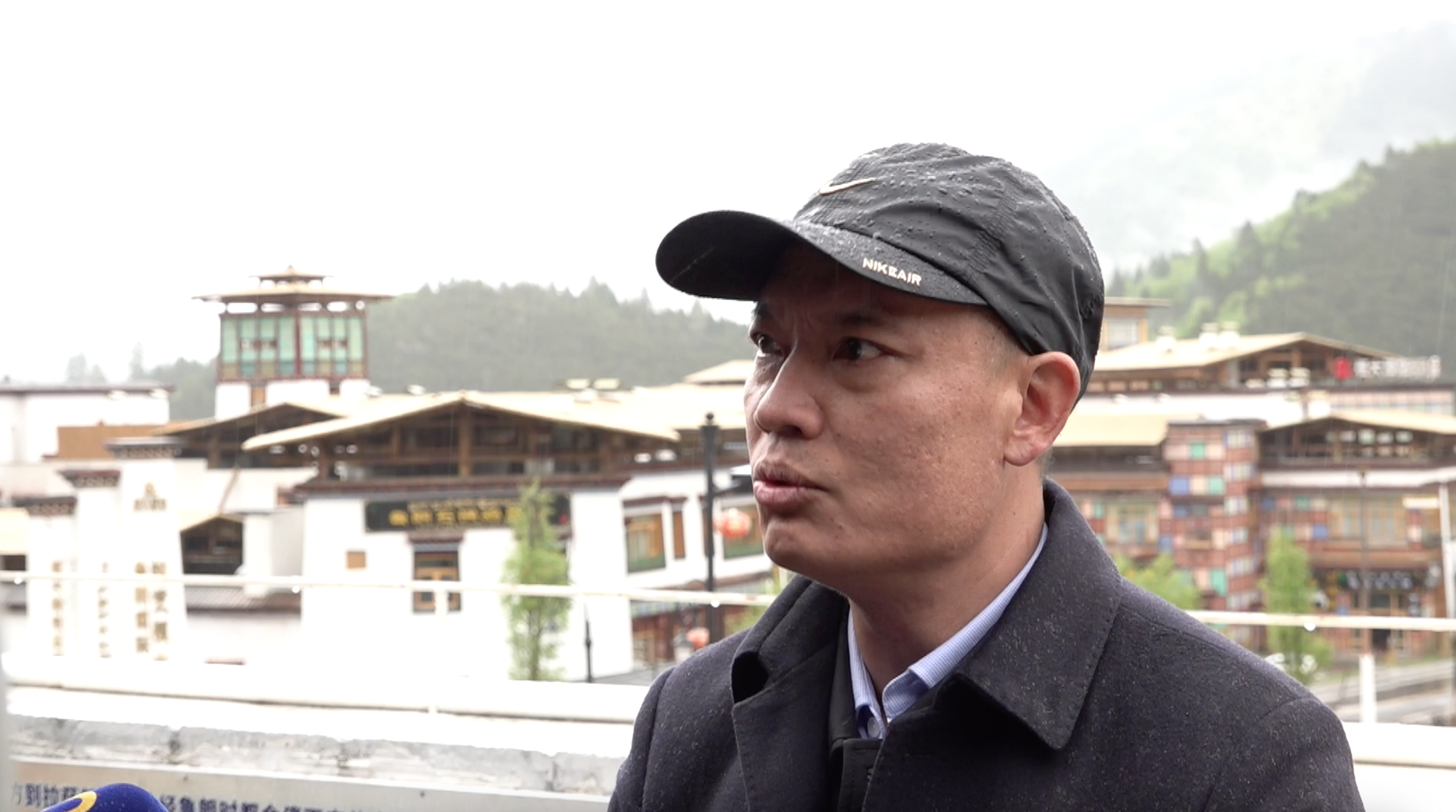01:51

Da Long, a resident of Baji Village on the outskirts of Nyingchi in China's Tibet Autonomous Region, is content with his life there. The 75-year-old said his apartment has been renovated with reinforced concrete, so he no longer worries about earthquakes.
"We have no concerns over food, clothing and housing as the whole of Tibet has gone through big changes and shaken off poverty," he said.
Baji Village managed to shake off extreme poverty by developing and providing services demanded by people coming there from urban areas.

Ngawang Lhamo, a resident of Baji Village on the outskirts of Nyingchi in China's Tibet Autonomous Region. /CGTN
Ngawang Lhamo, a resident of Baji Village on the outskirts of Nyingchi in China's Tibet Autonomous Region. /CGTN
Da Long indicated that doing business has been popular among villagers, as new and innovative ways of making a profit have become central to alleviating poverty.
In Ngawang Lhamo's case, the collectively-owned land in the village is allocated to her family and other villagers. Many of them then rent the plots out to companies and get dividends on an annual basis.
"Me and my family get 600,000 – 700,000 yuan (around $100,000) every year purely through land renting business," said Lhamo.

Zhou Hao, the first secretary of Baji Village on the outskirts of Nyingchi in China's Tibet Autonomous Region. /CGTN
Zhou Hao, the first secretary of Baji Village on the outskirts of Nyingchi in China's Tibet Autonomous Region. /CGTN
The ways to make profit are more than just renting out land. According to Zhou Hao, the first secretary of the village, profitable businesses now operating there range from a logistical park to the building supply market.
Zhou believes every village has a unique strategy to grow and develop. This village is next to the urban core, so it developed what the urban area needs. That's why the village developed a logistics park and building supply market to meet the city's demand, and those businesses bring about $1 million every year to the village.
02:12

Eco-tourism flourishes as residents place value on ecological protection
About 70 kilometers away from Baji Village is Zhaxigang Village. Palden, a 35-year-old resident, tends to his farm and feeds his livestock every morning before transitioning to his other business – operating homestays for tourists.
When he and his family started the business, they didn't even have any separate rooms for the guests. Now they greet as many as 2,000 tourists a year, taking in 200,000 yuan on an annual basis.

Palden, a resident of Zhaxigang Village in Nyingchi of China's Tibet Autonomous Region. /CGTN
Palden, a resident of Zhaxigang Village in Nyingchi of China's Tibet Autonomous Region. /CGTN
The rentals Palden owns have been undergoing renovations, as they're getting ready for an upcoming tourist peak season.
Thanks to local authorities, the money spent on businesses like this can be borrowed from banks with very low interest rates.
Because of that, many residents have turned to eco-tourism, a tourism model that helps local villagers earn a living by engaging in ecological progress and conservation.
"I hope my family and I can integrate the traditional agriculture and animal husbandry we've been doing and the emerging tourism business," said Palden, "We produce green and natural Tibetan butter, which is something tourists might want to try for themselves."

Hu Xiongying, a Lulang Management Committee official in Nyingchi, China's Tibet Autonomous Region. /CGTN
Hu Xiongying, a Lulang Management Committee official in Nyingchi, China's Tibet Autonomous Region. /CGTN
Just a few kilometers away from the village where Palden lives, the Lulang International Tourism Town has engaged in its own eco-friendly tourism development. The main scenic spots there include a natural forest park and alpine pastures.
Hu Xiongying, a Lulang Management Committee official in Nyingchi, said the forest coverage in the area is now over 80 percent, and the community fully realizes how important it is to protect the eco-system if they want to sustain the local tourism industry for the long haul.

